
Across Africa, young innovators are demonstrating that technology can transform even the most traditional professions. One of them is Harmony Abayomi, a recent Computer Science graduate from Caleb University, Lagos, and the founder of Valor AI, a startup using artificial intelligence to help farmers detect fruit diseases and reduce food waste.
What began as a university project quickly evolved into an award-winning solution. Harmony and his team developed a mobile app that allows users to take photos of fruits and instantly determine if they are healthy, suitable for sale, or diseased. In 2025, the app earned top honours at the Bells University NACOS Hackathon: Unveiling the future 2.0, drawing attention from major media outlets, including Punch and the BBC.
In this AgroCentric interview, Harmony shares how curiosity, coding, and compassion turned into a movement for more innovative farming, and why Africa’s agricultural future depends on its young innovators.
Can you please introduce yourself?
My name is Harmony Abayomi. I just graduated from Caleb University, Lagos, two months ago with a degree in Computer Science. I run an agritech startup called Valor AI, focused on precision agriculture. Our app helps farmers, vendors, and consumers detect fruit diseases early.
Congratulations on your graduation. What inspired your interest in agriculture?
I live along the Lagos-Ibadan expressway, where there’s a lot of farming and transportation of produce. I noticed how much food gets wasted, nearly 30% of it, and I wanted to solve that. Since I couldn’t farm physically, I decided to use my coding skills to address the problem of food waste.
What exactly does Valor AI do?
Valor AI helps reduce food waste and improve food security. You simply take a photo of a fruit, and our AI model classifies it as good to eat, good to sell, or diseased. It also provides insights into common plant diseases and agricultural tips.
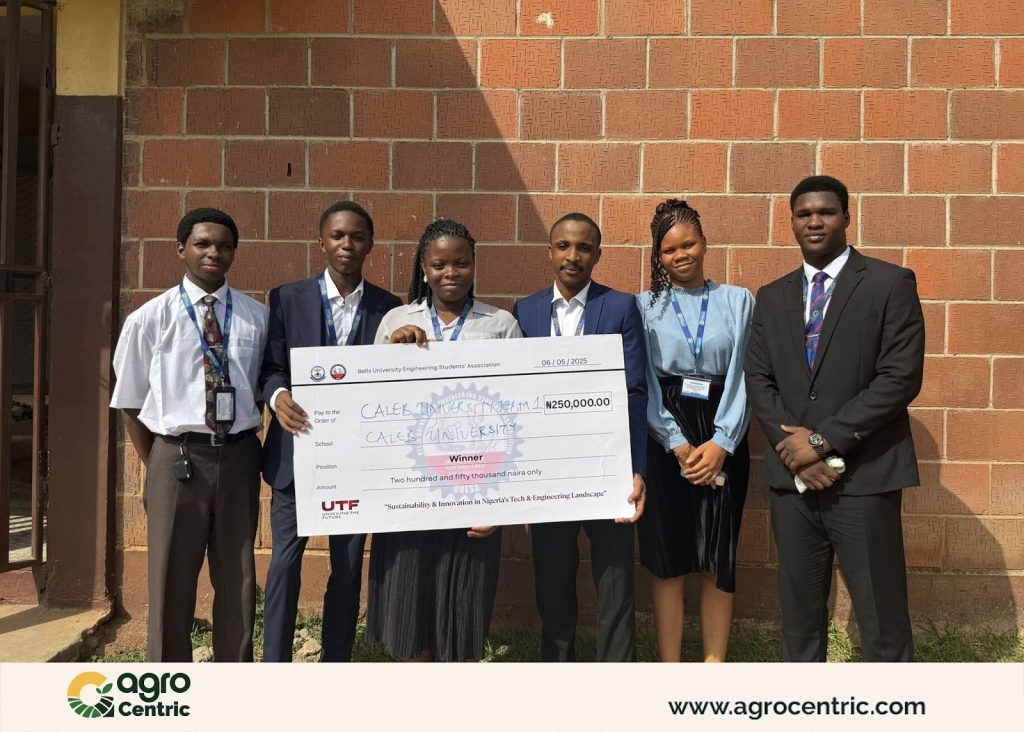
You participated in the Bell University of Technology’s NACOS Hackathon in May 2025 and won the competition. Tell us about that experience.
It was just a few days before school resumed. I was the last person to join my team, and the app actually stopped working right before the event. My teammate and I barely slept, and we fixed it while waiting for the driver on the morning of the hackathon. Upon our arrival, we encountered further hiccups. We couldn’t display our screen. My teammates presented while I stayed with the judges to show them our demo. Ultimately, we came first among Covenant, Babcock, FUTA, and Bell’s teams. My university had two teams in total, and ours won.
That’s impressive. How did you join the hackathon team?
Honestly, my HOD added me to the group because he knew I was already building something. He made me team lead without asking, so I didn’t plan it; it just happened.
How did your HOD discover your project?
I was the software lead for the Google developer group on Campus at Caleb University, and my HOD often interacted with us. During a departmental showcase, he asked if I had anything to present. I mentioned the idea, and he encouraged me to keep building.
You mentioned you’d been working on Valor AI before the hackathon. How did it start?
Yes, I had the idea in November last year. I love food, especially fruits, and I live in a farming area, so it made sense to combine both. When I started building, it was also a good excuse to ask my parents for mangoes; they never said no when I said it was for my project!
Why did you choose mangoes specifically?
Mangoes are just our starting point. We initially tried tomatoes, but there wasn’t enough data available online. Mango datasets were easier to find, so we started there. The goal is to expand to other fruits in the future.
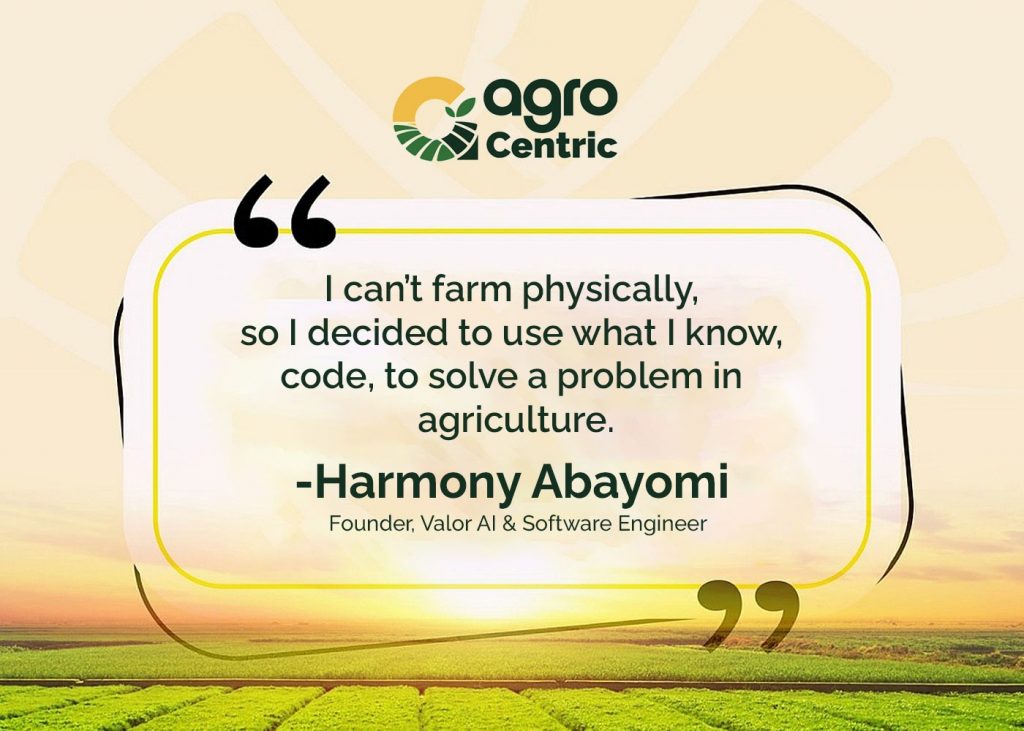
Can you walk us through how the technology works?
We trained our AI model using approximately 1,700 images of mangoes across five categories, four of which showed different diseases and one representing a healthy class. The app allows users to take photos or upload one from their gallery. It then analyses the image and tells you if the fruit is good to eat or sell. We’re currently building an offline model because many farmers don’t have reliable internet access.
What challenges did you face during development and testing?
First, my initial engineer left, so I handled most of the work until I found another one. The second challenge was collecting data. The third was that many modules for machine learning classification were outdated, so we had to test several before finding one that worked. On the user side, we are trying to make the app accessible in multiple local languages so that farmers who don’t speak English can use it easily. Accessibility is also key, which is why we’re developing offline capability.
Tell us a bit about your team.
There are four of us. Three of us were coursemates, while the fourth is a farmer. Two of us handle the technical side. I handle the software aspect(web and mobile), while Chibuzor Nwachukwu handles AI engineering. Freda Efod handles Marketing and sales, while Abdulafis Olarenwaju is our Product Manager.
How long did it take you to build the project?
We began in November last year, right after I got the idea.
Did the hackathon prize come with any funding?
Yes, we received ₦250,000. It wasn’t huge, but it was something.
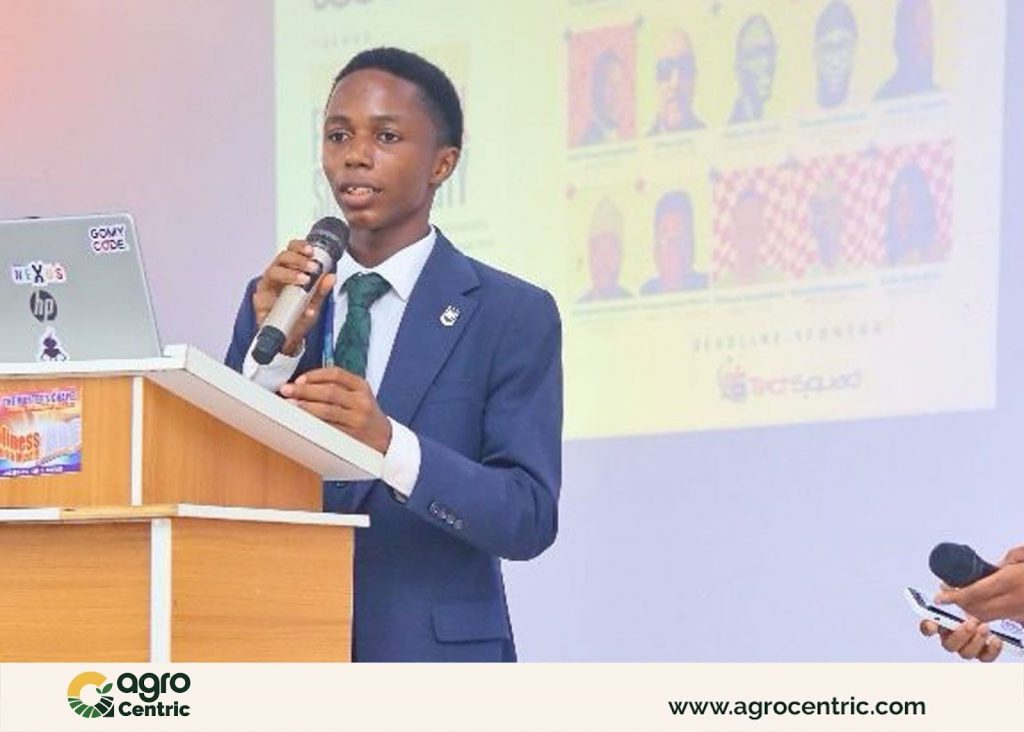
How has the win changed things for you?
A lot. Within a week, I was featured by The Punch, BBC, and over 30 other media outlets. I’ve also been invited to speak at events and connect with new partners. It was overwhelming in a good way.
How does Valor AI differ from traditional visual inspection?
Traditional methods rely on human judgment, which can be inconsistent and prone to bias. Imagine checking a thousand fruits, you’d get tired and make mistakes. Our AI model is over 95% accurate, removing human error from the process.
Do you know of any competitors doing something similar?
Yes, but most focus on crops rather than fruits.
How do you envision farmers or vendors using this technology day-to-day?
Adoption might be slow in Nigeria since not all farmers are tech-inclined, but I think it’ll catch on in time. Some regions in North Africa are already open to these innovations. We’re starting small, partnering with communities and agribusinesses to reach farmers directly.
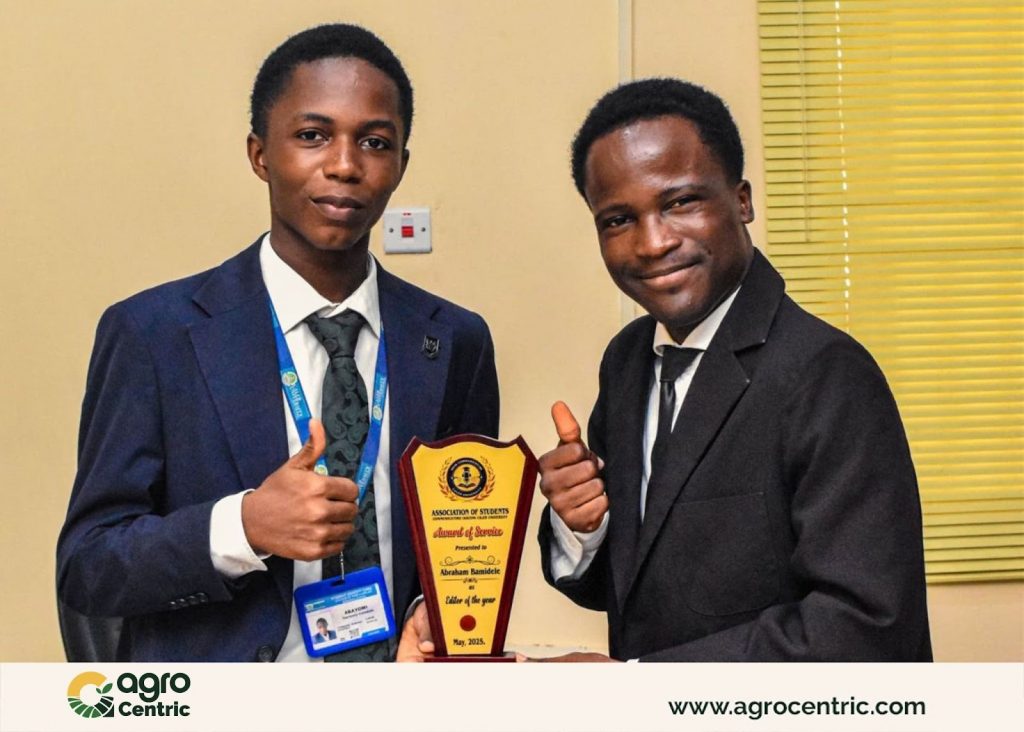
Have you considered working with agricultural extension agents?
We already have direct access to farmers, so collaborating with them could help us expand our reach. Thank you for that suggestion.
You mentioned plans to scale beyond mangoes. When should we expect that?
Soon. Once we finish refining the model’s accuracy and the offline version, we’ll launch a public test phase and expand to other fruits.
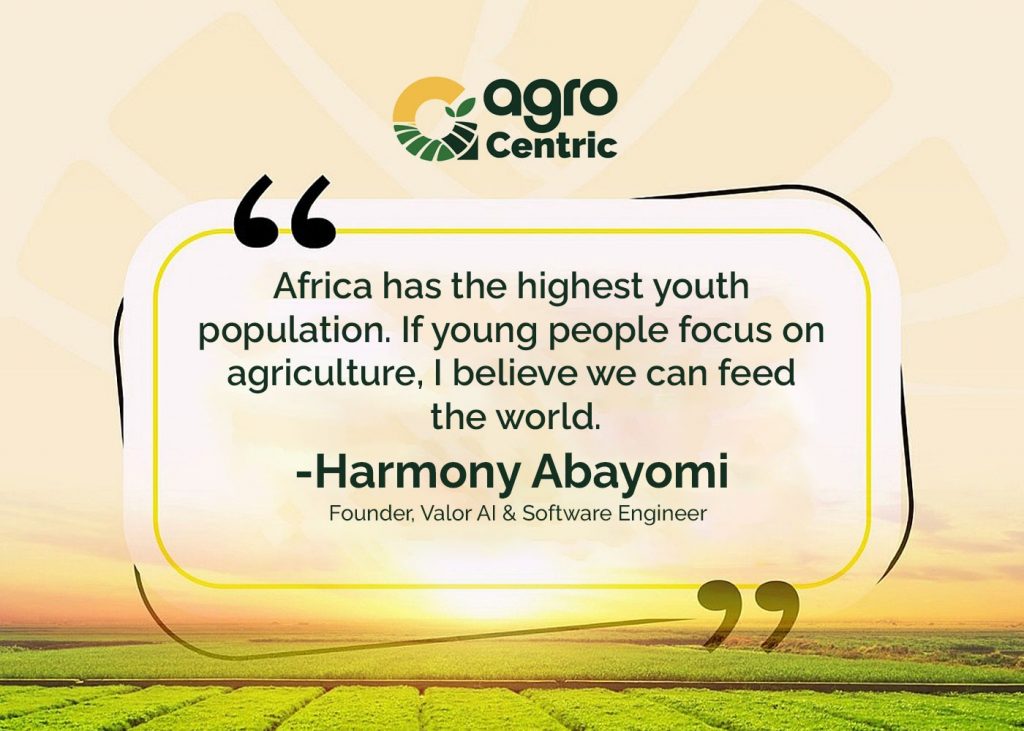
How important do you think youth-led innovation is for Africa’s agricultural future?
This is very important. Africa has the world’s largest youth population. If young people combine technology with agriculture, we can boost productivity and reduce our reliance on imports. With our soil and resources, Africa could be a global agricultural powerhouse.
What’s your advice to other young innovators?
Start small but stay consistent. Don’t wait until you have everything figured out. Focus on solving one real problem, and build from there. Agriculture might seem traditional, but it’s full of opportunities. The future of food depends on the creativity and persistence of young innovators.
What’s your long-term vision for Valor AI and agriculture in Africa?
I want to see a future where modern technology is an integral part of every farmer’s daily life. My dream is to make AI tools so easy to use that even a farmer with no formal education can benefit from them. If we can make agriculture more efficient, we can strengthen food systems, and that’s how we fight hunger and poverty sustainably.
Finally, any last words?
Thank you to AgroCentric for giving agriculture a voice. Not many media platforms highlight this space, so I really appreciate it.
Thank you, Harmony. Learn more about the Harmony Abayomi and follow through on how his innovation will eventually help to shape the future of African Agritech.